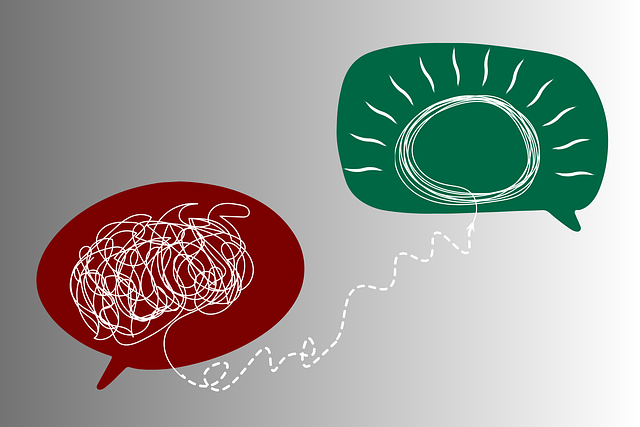Burnout among healthcare providers, especially in culturally diverse settings like Westminster German Speaking Therapy (WGST), is a growing concern. WGST offers a unique, culturally sensitive approach through Emotional Intelligence techniques and services in both German and English, preventing burnout by enhancing self-awareness and patient interactions. A supportive work environment, including open communication, regular check-ins, and mental health resources, is vital for providers' well-being. German Speaking Therapy (GST), grounded in cognitive behavioral therapy, helps challenge negative thought patterns and reduce emotional strain. Integrating self-care practices and professional development opportunities contributes to healthier work environments and mitigates burnout risks. Organizations prioritizing these practices empower staff to manage stress, enhance job satisfaction, and maintain a healthy work-life balance.
Healthcare provider burnout is a growing concern, impacting not just individuals but the entire healthcare system. This comprehensive guide explores effective prevention strategies, from understanding the root causes of burnout among healthcare providers to implementing cultural approaches like Westminster German Speaking Therapy for holistic well-being. We delve into creating supportive work environments, evidence-based stress management techniques, and fostering resilience through self-care practices.
- Understanding Burnout Among Healthcare Providers
- Westminster German Speaking Therapy: A Cultural Approach to Well-being
- Creating a Supportive Work Environment
- Evidence-Based Stress Management Techniques
- Fostering Resiliency and Self-Care Practices
Understanding Burnout Among Healthcare Providers

Burnout among healthcare providers is a growing concern in the medical field, particularly within culturally diverse settings like those offered by Westminster German Speaking Therapy. It’s characterized by emotional exhaustion, depersonalization, and reduced personal accomplishment, often stemming from prolonged exposure to stressful work environments. Healthcare professionals, especially those interacting with diverse patient populations, may face unique challenges that contribute to burnout. For instance, navigating cultural differences in communication styles, understanding varied emotional expression norms, and providing care sensitive to cultural beliefs can be demanding.
Effective prevention strategies must acknowledge these complexities. Westminster German Speaking Therapy emphasizes the importance of communication strategies that bridge cultural gaps, fostering open dialogue and mutual understanding. Additionally, promoting emotional healing processes through therapy and support groups can help providers process difficult emotions associated with their work. Cultural sensitivity in mental healthcare practice is another key aspect, ensuring that interventions are tailored to meet the unique needs and perspectives of diverse patient backgrounds.
Westminster German Speaking Therapy: A Cultural Approach to Well-being

Westminster German Speaking Therapy offers a unique cultural approach to burnout prevention and emotional well-being promotion among healthcare providers. This specialized therapy recognizes the significant impact that cultural background and language can have on an individual’s mental health and coping mechanisms. By providing services in both German and English, therapists create a safe and familiar environment for individuals who may face additional stress when accessing care in a foreign language.
The practice integrates Emotional Intelligence (EI) techniques to enhance self-awareness and resilience among healthcare providers. Through EI training, professionals learn to manage their emotions effectively, improve patient interactions, and reduce the risk of burnout, which is particularly prevalent among mental health professionals (as indicated by numerous risk assessment studies). This holistic approach not only benefits individual practitioners but also contributes to a healthier and more supportive healthcare ecosystem.
Creating a Supportive Work Environment

Creating a supportive work environment is paramount for healthcare providers’ well-being and prevents burnout. Organizations like Westminster German Speaking Therapy can lead by example in promoting emotional well-being through various initiatives. Implementing policies that encourage open communication, regular team check-ins, and accessible mental health resources can foster a culture of care and support. These strategies help therapists build resilience, reduce stress, and maintain a healthy work-life balance, ultimately benefiting both the provider and the patients they serve.
Additionally, integrating emotional well-being promotion techniques and mental health awareness training into the workplace routine is essential. By teaching empathy building strategies, these programs enhance interpersonal connections among staff members. Such efforts create an atmosphere where therapists feel understood, valued, and empowered to share their concerns, leading to improved job satisfaction and a reduced risk of burnout.
Evidence-Based Stress Management Techniques

Healthcare provider burnout is a growing concern, but evidence-based stress management techniques offer a promising solution. One effective approach gaining traction in clinical settings is German Speaking Therapy (GST), rooted in the principles of cognitive behavioural therapy. This dynamic therapy encourages patients to explore and reframe negative thought patterns, fostering healthier coping mechanisms and reducing emotional burden.
Integrating self-care practices alongside GST further bolsters burnout prevention efforts. Encouraging regular breaks, mindful activities, and adequate sleep can rejuvenate healthcare providers. Additionally, public awareness campaigns can play a vital role in promoting these strategies, highlighting the importance of both personal well-being and patient care. Conflict resolution techniques, learned through professional development opportunities, also contribute to creating healthier work environments, ultimately mitigating burnout risks.
Fostering Resiliency and Self-Care Practices

In today’s demanding healthcare landscape, fostering resilience and self-care practices is more crucial than ever for preventing burnout among providers. Healthcare professionals, much like a tree, need consistent nurturing to grow strong and withstand external pressures. Similar to how Westminster German Speaking Therapy emphasizes holistic well-being, incorporating strategies such as emotional intelligence development and stress management workshops can help build a solid foundation of coping skills. By investing in these practices, organizations empower their staff to manage stress effectively, enhance job satisfaction, and maintain a healthy work-life balance.
Through regular training sessions and resources that encourage open discussions on mental health, organizations can create an environment where professionals feel supported and valued. This, in turn, fosters a sense of belonging and encourages the adoption of self-care routines. By prioritizing emotional intelligence and coping skills development, healthcare providers gain valuable tools to navigate challenging situations, improve patient outcomes, and ultimately prevent burnout.
Healthcare provider burnout is a complex issue, but by implementing strategies like those offered through Westminster German Speaking Therapy, fostering supportive work environments, adopting evidence-based stress management techniques, and encouraging resilient self-care practices, we can create a more sustainable and healthy profession. These holistic approaches not only mitigate burnout but also enhance the overall well-being of healthcare providers, ensuring they can continue to deliver quality care with compassion.









